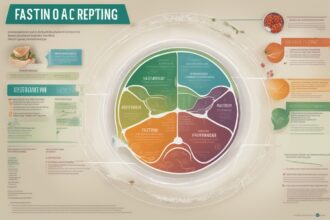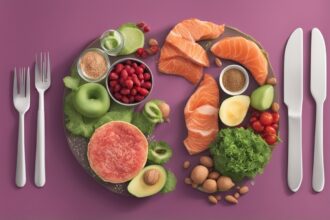Autophagy, often referred to as the body’s cellular “clean-up” process, plays a vital role in maintaining overall health and longevity. This natural mechanism allows cells to recycle damaged components, remove toxins, and repair themselves, which can protect against diseases like cancer, neurodegenerative disorders, and aging-related conditions. One of the most exciting aspects of autophagy is that it can be enhanced through lifestyle changes and natural methods. In this post, we’ll explore the science behind autophagy and actionable ways of boosting cellular repair naturally to optimize your health.
What Is Autophagy and Why Does It Matter?
Autophagy, derived from the Greek words for “self” and “eating,” is a cellular process where cells break down and recycle their own damaged or unnecessary components. Think of it as a built-in housekeeping system that keeps cells functioning efficiently. This process is crucial for cellular repair, energy production, and immune system support. When autophagy is impaired, damaged proteins and organelles can accumulate, leading to inflammation, oxidative stress, and disease.
By focusing on boosting cellular repair naturally, you can enhance autophagy and support your body’s ability to heal and regenerate. Research shows that autophagy declines with age, making it even more important to adopt habits that stimulate this process as we grow older.
How Autophagy Supports Cellular Repair
Autophagy directly contributes to cellular repair by targeting damaged mitochondria, misfolded proteins, and other cellular debris. Through a process called mitophagy (a subset of autophagy), old or dysfunctional mitochondria—the powerhouses of the cell—are removed and replaced with healthier ones. This helps maintain energy production and reduces the risk of cellular damage.
Additionally, autophagy plays a role in reducing inflammation and protecting against infections by eliminating harmful pathogens inside cells. By focusing on natural ways to boost autophagy, you’re essentially giving your cells the tools they need to repair and protect themselves. For a deeper dive into how autophagy works, check out our post on The Science of Autophagy Explained.
Top Natural Ways of Boosting Cellular Repair Naturally
While autophagy is a natural process, certain lifestyle practices and dietary choices can significantly enhance its activity. Here are some evidence-based strategies for boosting cellular repair naturally:
- Intermittent Fasting: Fasting for extended periods (e.g., 16:8 method) can trigger autophagy by reducing nutrient availability, forcing cells to recycle components for energy. Studies suggest that fasting for 12–16 hours may initiate this process.
- Caloric Restriction: Reducing overall calorie intake without malnutrition has been shown to stimulate autophagy and extend lifespan in animal studies. Focus on nutrient-dense foods to avoid deficiencies.
- Exercise: Regular physical activity, especially endurance and resistance training, can activate autophagy in muscle cells, aiding in repair and recovery.
These methods are accessible and don’t require expensive supplements or treatments. Learn more about fasting protocols in our guide on Intermittent Fasting for Beginners.
Dietary Choices to Enhance Autophagy
What you eat plays a significant role in boosting cellular repair naturally. Certain foods and compounds can activate pathways like AMPK and mTOR, which regulate autophagy. Incorporate the following into your diet:
- Polyphenols: Found in green tea, berries, and dark chocolate, polyphenols like resveratrol and epigallocatechin gallate (EGCG) can stimulate autophagy.
- Healthy Fats: Omega-3 fatty acids from fatty fish and avocados support cellular health and may enhance autophagic processes.
- Low-Carb Diets: Ketogenic diets, which minimize carbohydrate intake, mimic fasting states and may promote autophagy by shifting the body into ketosis.
Avoid excessive sugar and processed foods, as they can inhibit autophagy by over-activating mTOR, a pathway that suppresses cellular recycling when nutrients are abundant. For more on crafting an autophagy-friendly diet, see our article on Foods That Support Cellular Health.
Lifestyle Habits to Support Cellular Repair
Beyond diet and fasting, other lifestyle factors can contribute to boosting cellular repair naturally. Prioritizing sleep is essential, as autophagy is most active during rest. Aim for 7–9 hours of quality sleep per night to allow your body to perform cellular maintenance. Stress management is also key—chronic stress elevates cortisol levels, which can impair autophagy. Practices like meditation, yoga, and deep breathing can help.
Additionally, reducing exposure to environmental toxins by choosing natural personal care products and filtering your water can minimize cellular damage, giving autophagy less “mess” to clean up. Explore stress-relief techniques in our post on Mindfulness for Better Health.
Potential Risks and Precautions
While boosting cellular repair naturally through autophagy is generally safe for most people, it’s important to approach practices like fasting or extreme caloric restriction with caution. These methods may not be suitable for individuals with certain medical conditions, such as diabetes, eating disorders, or pregnancy. Over-activating autophagy through excessive fasting or stress on the body could also lead to unintended consequences, such as muscle loss or fatigue.
Always consult with a healthcare professional before making significant changes to your diet or lifestyle, especially if you’re on medication or managing a chronic condition. For personalized advice, read our guide on Consulting a Nutritionist for Optimal Health.
Disclaimer: The information provided in this article is for educational purposes only and is not intended as medical advice. Always consult with a qualified healthcare provider before making any changes to your diet, exercise routine, or health practices, especially if you have pre-existing medical conditions or are taking medications. The content is not a substitute for professional medical diagnosis or treatment.
References
- Mizushima, N., & Komatsu, M. (2011). Autophagy: Renovation of Cells and Tissues. Cell, 147(4), 728–741.
- Harvard Health Publishing. (2020). The Science of Autophagy: Can You Turn Back the Clock?
- Levine, B., & Kroemer, G. (2019). Biological Functions of Autophagy Genes: A Disease Perspective. Nature, 518(7540), 122–130.
- Mayo Clinic. (2022). Fasting: Health Benefits and Risks.
- WebMD. (2021). What Is the Autophagy Diet?
This content is for informational purposes only and not a substitute for professional medical advice.






